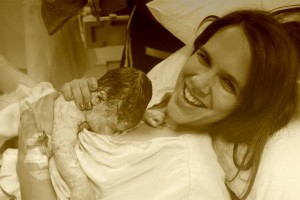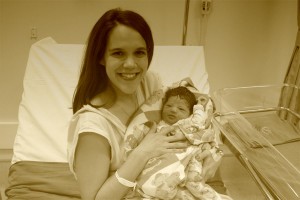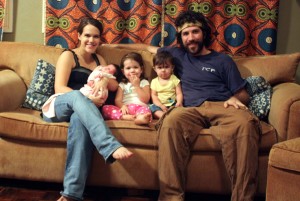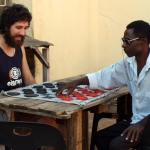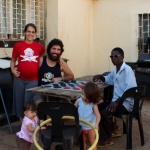A Jon Post
The sun was just starting to push the grey out of the windscreen and we were stuck in morning traffic on our way to the hospital. I hadn’t slept well the previous night and the coffee in my travel mug steamed up and out of the little pour spout as I sipped its bitter wake-up call. We slowly made our way into the city with the rest of the cars that surrounded us, speeding up and slowing down as little spaces opened, making the car’s motor pulse in long, drawn out beats like a dying mechanical heart.
“We have a song in my language, Jon.” Eliza was telling me, and she started an eerie hymn in the Ndão language. Her voice rose and fell like our car’s speedometer, and her heart sang out a refrain in her tribe’s ancient tongue that sent a chill and a peace into my spirit at the same time. Her song whispered to a stop. She explained in Portuguese so I could understand;
“This song says that you never know who will carry you to the place where you will die. We all expect it to be our father or our friend or our son or daughter but only Mwallee (God) knows. Only Mwallee knows the place and only Mwallee knows who will carry you there.”
So there I sat, in morning traffic. Driving a dear saint to the hospital where her hopes hang by spider silk threads to the idea that she may see her 7 month pregnant daughter again.
But this post wasn’t supposed to be about Eliza.
It’s about a 23 year old man named Rosario.
See, when Eliza sang about Mwallee and being carried, I was thinking about Rosario.
He arrived at the hospital about 7 weeks ago. He was gravely ill. His abdomen was dangerously swollen and in his eyes fear and pain jostled each other for position.
He smiled when he introduced himself to me.
I stood at the foot of his hospital bed and tried to ask a little about his home and his family. He spoke briefly but I saw the strain it took to respond and noticed pain winning the contest in his eyes. I whispered that he should rest and asked him if I could pray for him. I knelt beside him and whispered a prayer that I’ve whispered far too many times and gripped his hand softly then left.
He got worse.
Though pain dominated the fight in his eyes the fear never really gave up. There were some good days and on those days I was able to hear him laugh.
They were precious few but still very good days.
One day as I arrived he was being wheeled up to the oncology ward in a wheel chair. Oncology is on the second floor of the building it’s in. There is no elevator. Rosario sat slumped in his wheel chair and made no move to stand or struggle up the stairs. His eyes showed no fight, only pain.
I put my head under his arm and tried to help him stand and make his way back to his bed. He shuffled his feet for maybe three steps and then his legs gave way and I pulled him tight against my shoulder to keep from falling with him back down the stairs.
So into my arms he came. My left arm around his shoulders, my right hooked behind his knees, we struggled up the steps. Alice, our dear friend and partner walked out of oncology at that moment and rushed to help support his weight. We made our way down the corridor, through a small door where Alice had to briefly let go so Rosario and I could pass through the opening, and finally to his bed. He made no move to even roll over and make himself comfortable. He simply lay there in his sweat and pain, breathing and squinting his eyes, trying to hold pain at bay.
It was the day I carried Rosario that floated hauntingly through my head as Eliza sang her beautiful psalm on the way to the hospital.
Though Rosario had better days since that one, he did not have many.
His best days came long before this sickness. Some days he walked his father’s farm in the northern Mozambican province called Tete. Some days he played soccer with his friends in the field out behind his school. Some days he carried his little sister around the family property while his mother pounded corn into corn meal and made porridge for his family. Some days he went to mass at church and knelt before a Holy God. Some days he laughed and ran from the old man down the street who shook his walking stick at him and his friends for stealing lettuce from his farm. Some days he lied, some days he spoke truth, some days he hurt others, some days he offered grace and humility, some days he prayed, some days he cursed… and in all those days he was whole and strong and smiling. Those were his good days. Those are the days he remembered, even as he approached his last day.
He died on Saturday night. He died in the place I carried and laid him.
In Rosario’s 23 years of life he knew many men and women. He had the love of his father, mother and two sisters and his Savior. And mine.
Mwallee has honored me by trusting me with this humble office; I got to carry Rosario to the place where he died.
